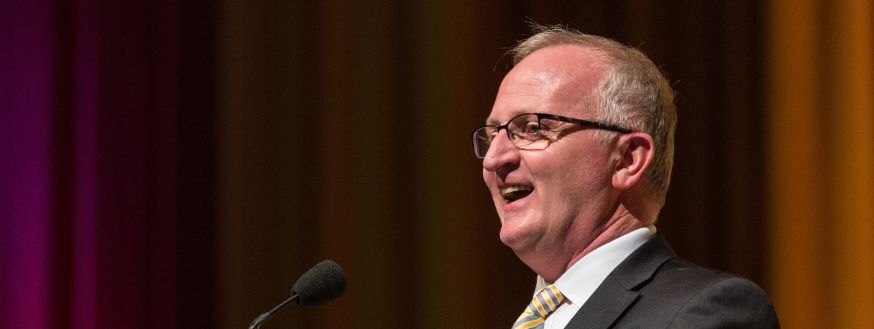Page 90 • (2,597 results in 0.038 seconds)
-
Learning Outcomes*Effective January 2019* Upon completion of their degree, Religion majors will be able to: Explain “Religion” as a category of analysis in academic contexts, identifying when and how religious beliefs, interpretations, and practices shape human life, culture, and history, as well as how they change over time. Analyze religious traditions and expressions within their historical, social, and cultural contexts. Describe an array of academic tools or methods in the study of
-
their existing values – as a result of their experiences in your course. Possible Assessment Procedures: Personal reflections Standardized questionnaires, for example, about interests, attitudes, or values Learning portfolios Human DimensionThis has two aspects: the Personal Dimension (Self) and Social Dimension (Others) Personal Dimension: Information about this dimension can be elicited in two basic ways: Personal reflections Standardized questionnaires, on factors such as self-confidence, can be
-

Square in mid-November, investigates the multiple challenges to U.S. and Canadian waterways, more than 50 percent of which are threatened by overpopulation, urban and rural water pollution, climate change and more. Produced by a team of seven PLU undergraduate students, “Changing Currents” received five Accolade Awards of Merit in the Documentary Short, Use of Film / Video for Social Change, Original Score, Editing and Title/Credit Design categories. “Changing Currents” was also recognized with an
-

religion may be a more humane one. Unlike current stereotypes about religion: PLU does not equate religious affiliation with an anti-intellectual/anti-science stance or a lack of the best, contemporary rigorous scholarship. Religious beliefs are treated with respect as valuable to the believer; Many people in our world engage the “holy” or spiritual and these are assets they bring to our educational community. Students are encouraged to bring their religious, cultural, social values and perspectives to
-
) EDUC 791: Program Evaluation Applied Project & Seminar (4) 2025-26 Academic Year TermCredit Hours Summer 20252 courses (5 credits) EDUC 761: Educational Leadership: Equity and Social Justice (3) EDUC 792: Applied Project Seminar (2) Fall 20252 courses (7 credits) EDUC 762: Educational Leadership: Systems Leadership (3) EDUC 793: Instructional Leadership and Equity Applied Project & Seminar (4) Spring 20262 courses (6 credits) EDUC 794: Instructional Leadership and Equity Applied Project & Seminar
-
literature and film. Special attention will be given to recent developments and cultural shifts within the Francophone context. The course aims to deepen students’ understanding of the dynamic nature of popular culture and its significance in shaping identities, communities, and global perspectives. It is an elective for the Global Studies major (Development and Social Justice concentration) and can count for the major in Gender, Sexuality, & Race Studies and the minor in Critical Race Studies. French
-
the contemporary world. In IHON, you will learn to evaluate the claims past and present societies and communities tend to make about their achievements. You will also learn to contextualize these claims, in order to explore those societies’ and communities’ achievements and shortcomings. But you’ll also use those perspectives to contextualize your own claims and your own society. Think about how social issues are different in different societies and different times: the basic questions may be the
-

Education Teacher Collaborative Learning Social Foundations of Education History of Education Selected Articles Jones, S., Sutton, P. S.. ""Doing equity work while black in a culturally white school district."." Phi Delta Kappan 2021: 103(1), 38-42. Sutton, P. S., Shouse, A. W. . ""Tending to the “deep rules” of teacher collaboration."." Commentary found in Teachers College Records 2020: Sutton, P. S., Knuth, R.. " "How high school departments impact school improvement initiatives." ." Journal of
Area of Emphasis/Expertise -
, and oceans that compose her novels without wallowing in despair. Instead, our project seeks to spark a lively conversation through social annotation and to create a space for reflection. Climate activists have taught us that our troubles cannot be solved by one or just a few individuals. Rather, these times call on us to collaborate. So, we turn to collaborative reading to raise old and new questions. Social annotation involves the collaborative creation of digital notes on the margins of a text
-

area must continue and conversations around that are ongoing. We hope that those of you able to attend a session found it useful and will help in communicating what you learned with your peers. Should you have any additional questions or suggestions, please reach out to us (plusc@plu.edu) or to President Belton (pres@plu.edu). Best, PLUSC Read Next PLU Staff Council Brunch Social LATEST POSTS 2019 Ice Cream Social October 16, 2019 Staff Forum with President Belton May 10, 2019 2019 Spring Brunch
Do you have any feedback for us? If so, feel free to use our Feedback Form.


